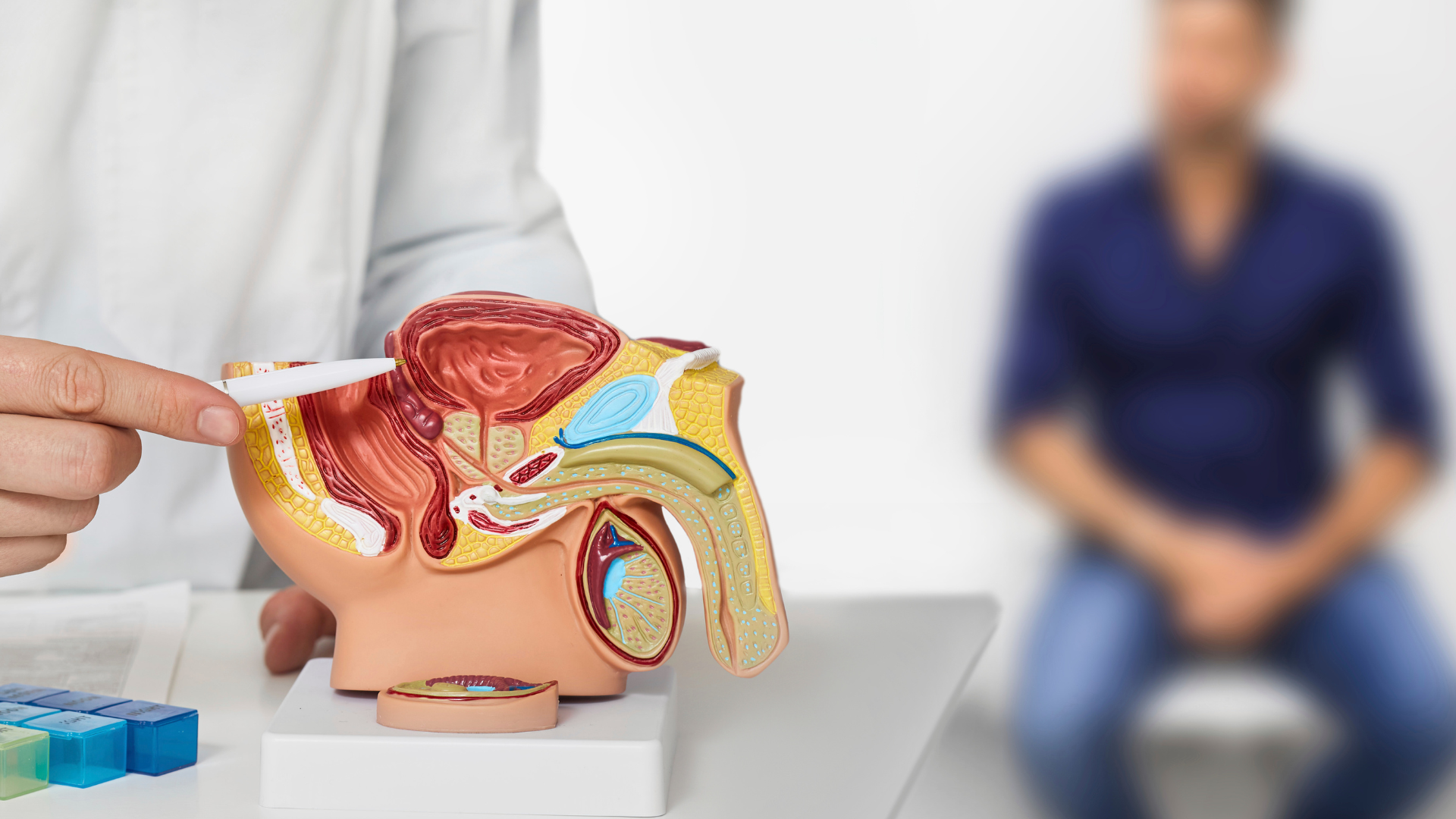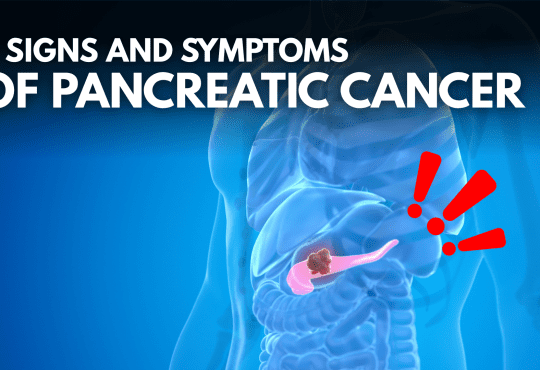
What Happens To Your Body When You Get Prostate Cancer
Prostate cancer is one of the most common cancers in men, but most people don’t fully understand how it affects the body.
So let’s break it down:
“What actually happens when a man develops prostate cancer?”
It all starts in a small gland called the prostate.
Located just below the bladder and in front of the rectum, the prostate produces fluid that helps nourish and transport sperm.
As men age, it’s normal for the prostate to grow a bit, but in some cases, cells in the gland start growing abnormally and uncontrollably. That’s when cancer begins.
At first, this growth might be silent.
Early prostate cancer often causes no symptoms at all, which is why regular screening—like a PSA blood test or digital rectal exam—is so important.
But as the tumor grows, it can start pressing on the urethra, the tube that carries urine out of the body. This leads to some of the early warning signs.
You might notice:
- Difficulty starting or stopping urination
- A weak or interrupted urine stream
- The feeling that you didn’t completely empty your bladder
- Increased frequency—especially at night
- Pain or burning while urinating
- Or even blood in the urine or semen
These symptoms can overlap with an enlarged prostate or infections, which is why diagnosis often involves follow-up imaging, biopsies, and lab tests.
Let’s look at what happens next.
As prostate cancer spreads, it often follows a predictable path.
First, it may move into nearby tissues like the seminal vesicles. From there, it can spread to the lymph nodes, bladder, or rectum.
And if it goes even further—into the bloodstream or lymphatic system—it can reach the bones, especially the spine, hips, or ribs.
This stage is called metastatic prostate cancer.
When it reaches the bones, men may experience deep, aching pain, especially in the lower back or pelvis.
Some also feel fatigue, weight loss, or even leg swelling if lymph drainage is blocked.
If the cancer compresses nerves in the spine, it can lead to numbness, tingling, or loss of bladder or bowel control, which is a medical emergency.
Now let’s pause for a real story that shows how subtle this can be.
John, a 68-year-old retired teacher, felt fine—until he started waking up three or four times a night to pee. He chalked it up to aging.
But after some urging from his wife, he saw a doctor. His PSA level was high, so they did a biopsy. It turned out to be early-stage prostate cancer.
Fortunately, it hadn’t spread yet.
He opted for radiation therapy and hormone treatment, and today, he’s cancer-free and mentoring others going through the same journey.
His case shows how prostate cancer can hide in plain sight—and why early detection truly matters.
Now, not all prostate cancers grow fast.
Some are slow-growing and may never become life-threatening, especially in older men. In these cases, doctors might recommend something called active surveillance—keeping a close eye on the cancer but holding off on treatment unless it starts to grow.
But for more aggressive types, treatments may include:
- Surgery to remove the prostate (called a prostatectomy)
- Radiation therapy
- Hormone therapy to reduce testosterone, which fuels cancer growth
- Chemotherapy or targeted therapy for advanced stages
Each option comes with potential side effects. Removing the prostate can lead to urinary incontinence or erectile dysfunction, because of the nerves and muscles involved.
Hormone therapy can cause hot flashes, loss of muscle mass, fatigue, and emotional changes.
That’s why treatment decisions depend not just on the cancer stage, but also on your age, general health, and quality-of-life priorities.
Let’s not forget the emotional impact.
Prostate cancer touches more than the body—it affects self-esteem, relationships, intimacy, and mental well-being.
Talking to a counselor or joining a support group can help men process these changes, and not feel alone in the journey.
So, What Can You Do?
The key takeaway is this: prostate cancer can be sneaky.
It may not cause symptoms at first, but when it does, the changes are often subtle. That’s why screening matters, especially for men over 50 or those with a family history.
A simple PSA test could help catch cancer early, when it’s most treatable.
So if something feels different, or if you’re overdue for a checkup, talk to your doctor.
And if you’re watching this for someone you love—a husband, a father, a brother—don’t keep it to yourself.
Share this blog with them. It might be the nudge they need to get checked, ask questions, or take their health more seriously.
You never know… it could save a life.
Take care of yourself—and your loved ones. Because when we understand what’s happening inside the body, we’re one step closer to protecting it.
And that knowledge? That’s powerful.









